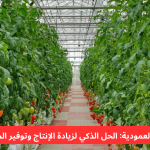This course provides a comprehensive introduction to regenerative organic agriculture, a holistic approach that goes beyond traditional organic farming by focusing on restoring and enhancing the resilience of farming ecosystems. The course explores the principles and practices that regenerate soil health, biodiversity, and water cycles, ensuring a sustainable future for agriculture and food systems.
Upon completion of this course, participants will be able to:
- Understand the principles of regenerative organic agriculture and its distinction from conventional and organic farming.
- Gain knowledge of the techniques used to regenerate soil health, including cover cropping, composting, and reduced tillage.
- Explore the importance of biodiversity and integrated pest management in regenerative systems.
- Learn about the role of water management in sustainable farming practices.
- Develop the skills to implement regenerative practices on their own farms or in agricultural consultancy roles.
This course is intended for:
- Farmers and agricultural professionals seeking to transition to or enhance their knowledge of regenerative organic practices.
- Environmental consultants and sustainability professionals.
- Policymakers and educators in the field of sustainable agriculture.
- Anyone interested in the intersection of agriculture, sustainability, and ecosystem restoration.
This course uses a variety of adult learning styles to aid full understanding and comprehension. Participants will review case studies to highlight key areas of importance and possible areas for faults. They will be supplied with the best tools required for learning exercises to improve their skills. Participants will analyse the examples to thoroughly understand how these skills, techniques and methods apply in the workplace.
Day 5 of each course is reserved for a Q&A session, which may occur off-site. For 10-day courses, this also applies to day 10
Section 1: Introduction to Regenerative Organic Agriculture
- History and evolution of regenerative agriculture.
- Key principles and philosophies.
- Differences between organic and regenerative agriculture.
Section 2: Soil Health and Management
- Importance of soil health in regenerative systems.
- Techniques for building and maintaining soil fertility.
- Composting, cover crops, and green manures.
- Case studies of successful soil regeneration.
Section 3: Biodiversity and Ecosystem Services
- Role of biodiversity in farm ecosystems.
- Strategies for enhancing biodiversity on the farm.
- Integrated Pest Management (IPM) in regenerative systems.
- Supporting pollinators and other beneficial organisms.
Section 4: Water Management in Regenerative Agriculture
- Water cycle dynamics in healthy ecosystems.
- Techniques for water conservation and management.
- Rainwater harvesting and irrigation practices.
- Addressing the challenges of climate change in water management.
Section 5: Economic and Social Aspects of Regenerative Farming
- Economic benefits and challenges of regenerative practices.
- Social impacts and community involvement.
- Marketing and certification of regenerative products.
- Policy frameworks and support for regenerative agriculture.
Section 6: Practical Implementation and Case Studies
- Developing a regenerative farming plan.
- Real-world examples and success stories.
- Tools and resources for ongoing learning and development.
- Field visits and practical demonstrations (optional module).
Upon successful completion of this training course, delegates will be awarded a Holistique Training Certificate of Completion. For those who attend and complete the online training course, a Holistique Training e-Certificate will be provided.
Holistique Training Certificates are accredited by the British Assessment Council (BAC) and The CPD Certification Service (CPD), and are certified under ISO 9001, ISO 21001, and ISO 29993 standards.
CPD credits for this course are granted by our Certificates and will be reflected on the Holistique Training Certificate of Completion. In accordance with the standards of The CPD Certification Service, one CPD credit is awarded per hour of course attendance. A maximum of 50 CPD credits can be claimed for any single course we currently offer.
- Course Code IND6 - 105
- Course Format Classroom, Online,
- Duration 5 days









